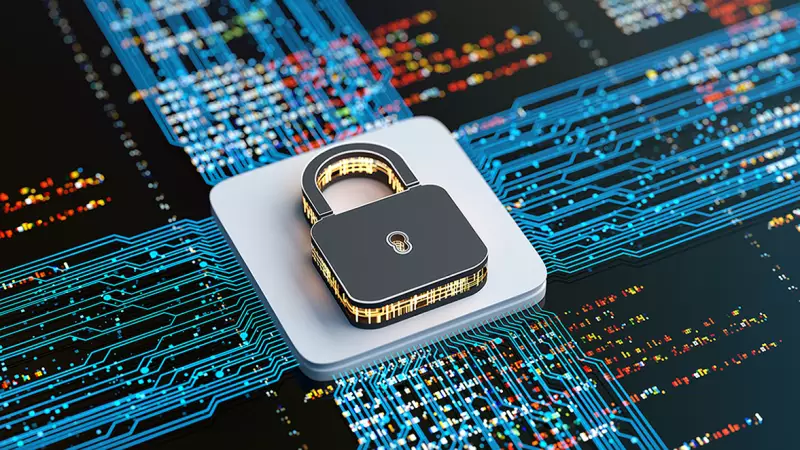
Introduction
Data encryption serves as a cornerstone of cybersecurity, protecting sensitive information from unauthorized access and ensuring confidentiality in digital communications and transactions. As organizations increasingly rely on digital platforms to store and transmit data, adherence to robust data encryption standards becomes paramount to mitigate risks of data breaches and cyber threats. In this comprehensive article, we explore the significance of data encryption standards, key methodologies, regulatory frameworks, emerging trends, and the implications for cybersecurity practices.
Understanding Data Encryption Standards
Data encryption involves converting plaintext information into ciphertext using cryptographic algorithms and keys, rendering it unreadable to unauthorized users. Encryption ensures confidentiality by securing data-at-rest (stored data) and data-in-transit (transmitted data), thereby safeguarding sensitive information such as financial records, personal identities, intellectual property, and government secrets.
Key Data Encryption Standards and Methodologies
- Advanced Encryption Standard (AES): AES is a symmetric encryption algorithm widely adopted for securing sensitive data. It uses varying key lengths (128-bit, 192-bit, or 256-bit) to encrypt and decrypt information efficiently, ensuring robust protection against brute-force attacks.
- RSA Encryption: RSA (Rivest-Shamir-Adleman) is an asymmetric encryption algorithm used for key exchange and digital signatures. It employs a public-private key pair to encrypt data and verify digital signatures, facilitating secure communication and authentication.
- Elliptic Curve Cryptography (ECC): ECC is a cryptographic approach suitable for constrained environments, offering strong security with shorter key lengths compared to traditional algorithms like RSA. It is widely used in applications requiring efficient encryption, such as mobile devices and IoT (Internet of Things) devices.
- Transport Layer Security (TLS): TLS protocols, including TLS 1.2 and TLS 1.3, secure data-in-transit over networks such as the internet. TLS ensures confidentiality, integrity, and authentication during data exchange between clients and servers, supporting secure communication channels for websites, email servers, and cloud services.
Regulatory Frameworks and Compliance Requirements
- General Data Protection Regulation (GDPR): The GDPR mandates encryption as a technical measure to protect personal data against unauthorized access and data breaches. Organizations processing personal data must implement encryption and pseudonymization techniques to achieve compliance with GDPR requirements.
- Health Insurance Portability and Accountability Act (HIPAA): HIPAA regulations require healthcare organizations to implement encryption measures to protect electronic protected health information (ePHI) during storage and transmission. Encryption safeguards mitigate risks of data breaches and unauthorized disclosures of sensitive health data.
- Payment Card Industry Data Security Standard (PCI DSS): PCI DSS mandates encryption of cardholder data to protect payment transactions and prevent unauthorized access by malicious actors. Compliance with PCI DSS encryption requirements ensures secure handling of payment card information across payment processing environments.
Emerging Trends in Data Encryption
- Homomorphic Encryption: Homomorphic encryption enables computations on encrypted data without decrypting it, preserving confidentiality while allowing data analysis and processing in encrypted form. This revolutionary approach holds promise for secure data sharing and privacy-preserving analytics in sensitive environments.
- Post-Quantum Cryptography: With the advent of quantum computing, post-quantum cryptography research aims to develop encryption algorithms resilient to quantum attacks. Post-quantum cryptographic standards seek to future-proof data encryption against emerging threats posed by quantum computers.
- Zero Trust Architecture: Zero Trust frameworks advocate for encrypting data-at-rest and data-in-transit as foundational principles of a holistic security strategy. Implementing encryption within Zero Trust architectures enhances protection against insider threats, external breaches, and unauthorized data access.
Implications for Cybersecurity Practices
- Data Protection Strategies: Organizations should adopt a layered approach to data protection, integrating encryption with access controls, authentication mechanisms, and security monitoring. Encryption strengthens defenses against data breaches and enhances resilience in the face of evolving cyber threats.
- Compliance and Auditing: Regular auditing and assessment of encryption implementations ensure adherence to regulatory requirements and industry standards. Compliance audits verify encryption efficacy, key management practices, and data protection measures across organizational IT infrastructures.
- User Awareness and Training: Educating employees and stakeholders on data encryption best practices fosters a culture of cybersecurity awareness. Training programs promote responsible data handling, encryption key management, and incident response protocols to mitigate human error and insider threats.
Future Directions and Conclusion
As digital transformation accelerates across industries, the importance of data encryption standards in safeguarding sensitive information cannot be overstated. By leveraging robust encryption algorithms, complying with regulatory frameworks, and adopting emerging encryption technologies, organizations can fortify cybersecurity defenses and uphold data privacy principles in an increasingly interconnected world.
In conclusion, data encryption standards play a pivotal role in protecting confidentiality, preserving data integrity, and mitigating risks of unauthorized access and cyber threats. By prioritizing encryption as a fundamental component of cybersecurity strategies, organizations bolster trust, resilience, and compliance in safeguarding sensitive information from evolving security challenges.
Contact Us
For premier legal research services in Cyber Law cases in Nigeria, contact Chaman Law Firmhttps://www.chamanlawfirm.com/about-us/ today. Our offices are conveniently located in Lagos, FCT Abuja, Ogun State, and the UK. We are readily available to assist you with your legal needs. Whether you require consultation or services in Cyber law in Nigeria.
Call us at 08065553671 or email us at info@chamanlawfirm.com to schedule a consultation.
- Data Protection and Privacy
- Cybersecurity and Cybercrime
- Intellectual Property in the Digital Space
- Online Defamation and Harassment
- Electronic Commerce and Digital Contracts
Chaman Law Firm: Your Trusted Legal Partner in Cyber Law
By choosing Chaman Law Firm, you are selecting a team of dedicated professionals committed to providing exceptional Cyber legal services tailored to your unique needs. Let us be your advocate and guide in the complex world of Cyber law, ensuring your interests are protected and your goals are achieved.

